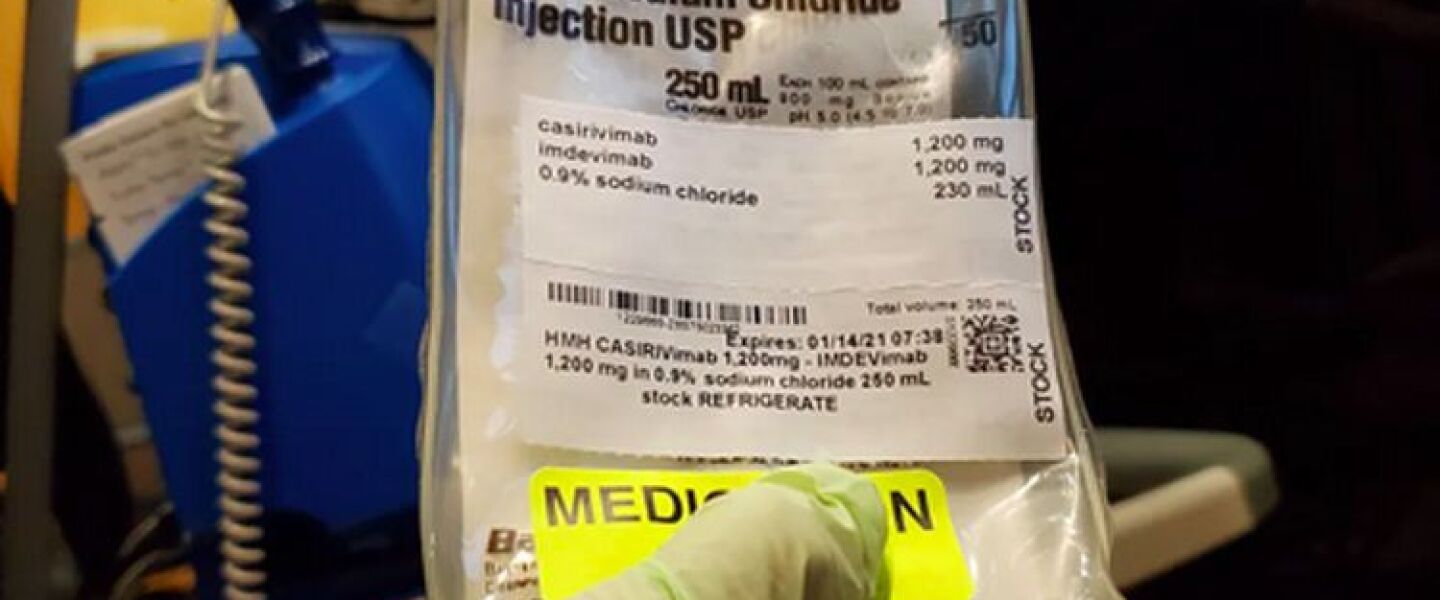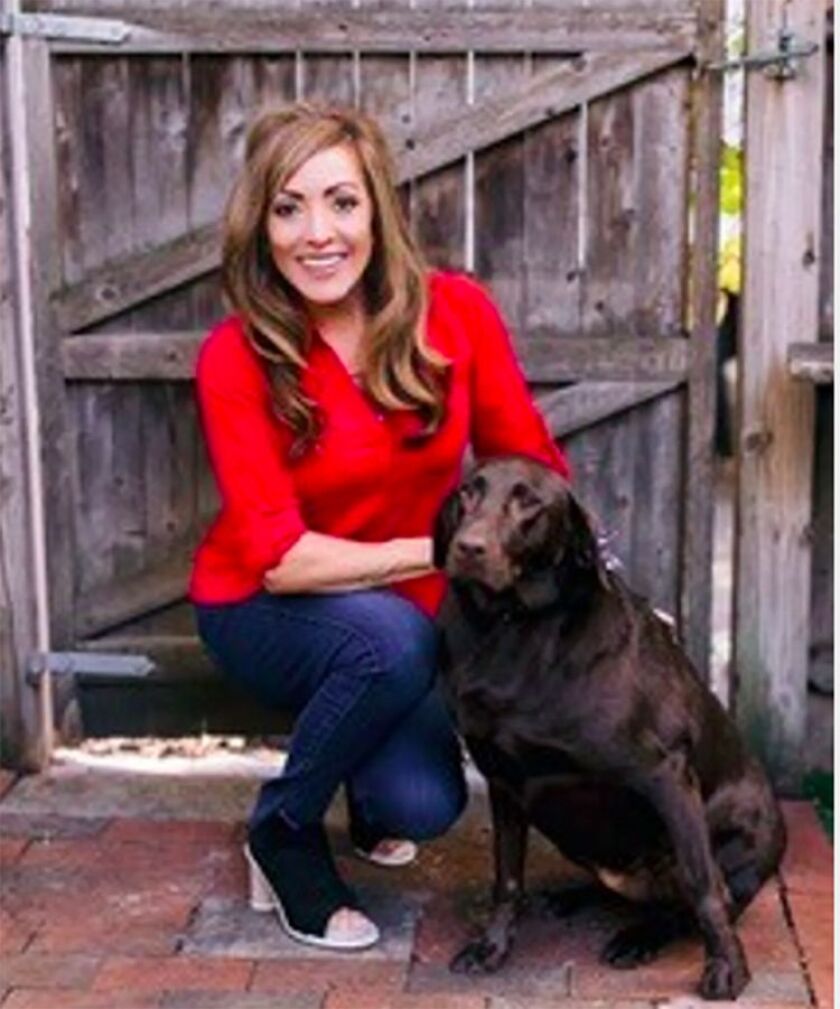Dr. Robert Montgomery had several reasons for getting a COVID-19 vaccine as soon as he could.
For one, he’s a transplant surgeon at a busy New York hospital, and the pandemic has exacted a terrible toll on transplant recipients, killing about 20% of those infected.
Montgomery is also a transplant patient himself. The heart inside his 61-year-old chest isn’t the one he was born with.
So he was doubly distressed when his body failed to mount a detectable response to his two-dose coronavirus vaccine.
The medications that prevent rejection of a transplanted organ also block many transplant patients from making protective antibodies. A recent study from Johns Hopkins University School of Medicine found that only 17% of transplant recipients had antibodies after their first dose of a COVID vaccine, with an additional 35% responding after two shots.
Though the vaccines work incredibly well for most people, roughly 10 million Americans whose immune systems are compromised because of medication or disease might not be well protected.
“This isn’t over for us,” said Michele Nadeem-Baker, who has chronic lymphocytic leukemia that’s out of remission.
She got two shots of the Moderna vaccine but is pretty sure she has no protection against the virus.
For Nadeem-Baker, a patient at Dana-Farber in Boston, the pandemic still looks a lot like it did during the worst of the outbreak: She always wears a mask, keeps her distances, avoids crowds.
“It isn’t easy to continue living like this,” she said.
Researchers aren’t sure yet exactly what an adequate immune response looks like — or what level of protection is enough. And once they figure out who is protected, they need to figure out what to do for people like Montgomery and Nadeem-Baker who aren’t.
Montgomery’s approach was to sign himself up for a clinical trial testing a third vaccine dose.
For him, it worked. After the third shot, testing showed his immune system made protective antibodies and also longer-shielding T cells.
It’s unclear how many of each is enough to safeguard someone against COVID-19, but Montgomery is satisfied he has some protection.
Not everyone can secure that peace of mind.
“Our patients are freaking out — and rightfully so,” Montgomery said. “There’s no good guidance out there.”
Until results from clinical trials are in, Dr. Dorry Segev at Johns Hopkins Medical Center tells transplant patients” “Get vaccinated; act unvaccinated.”
He said they should take all of the precautions the Centers for Disease Control and Prevention recommends for people with no protection, such as continuing to wear masks and socially distance.
When the CDC abruptly lifted its mask recommendations for vaccinated people, Segev said, “The world quickly got less safe for immunosuppressed people.”
It’s now far more frightening for transplant recipients to do something as simple as grocery shopping because they don’t know which unmasked person near them is safe.
Segev is studying the effectiveness of a third dose, hoping “there’s something we will ultimately be able to do for transplant patients.”
A relative handful of people already have started getting extra shots — showing up at vaccination centers and not admitting they’ve been vaccinated. It would be far safer, Segev said, to get that third dose through a clinical trial. He’s looking for volunteers at transplantvaccine.org.
Segev hoped that, even though transplant patients didn’t develop antibodies, they might still have some protection against COVID-19.
Unfortunately, his and other hospitals are starting to admit transplant patients who contracted COVID9 after being fully vaccinated.
“That’s almost unheard of in the general population,” he said.
Segev also will look at whether transplant patients who failed to develop a response after two doses of mRNA vaccines — made by Pfizer-BioNTech and Moderna — fare any better after a booster. His earlier research suggested that the single J&J vaccine was even less protective for transplant patients than the two-shot vaccines.
Luckily, most other immunocompromised people will get better protection than transplant patients, experts say. Vaccines appear to be just as safe for them, and most seem to get at least some protection.
Still, it’s impossible for now to know how safe someone is. For the general population, which is more than 90% protected by the vaccines, there’s no need to worry, experts said.
For people who are immunocompromised, though, there’s no good way to know whether they’re protected. Antibody tests, which look for some types of protective antibodies, might not tell the whole story, said Dr. Gil Melmed, who directs inflammatory bowel disease clinical research at Cedars-Sinai Medical Center in Los Angeles. The CDC has discouraged people from using the tests.
For everyone, antibodies are likely to decline over time, and it’s not clear what level is protective.
Vaccines also generate T cells, the soldiers of the immune system, which seem to provide longer-term protection. But there are no commercially available tests to look for them.
People who are immunocompromised should “build a wall of protection” by getting vaccinated and making sure everyone around them is vaccinated, said Dr. Rajesh Gandhi, an infectious disease specialist at Massachusetts General Hospital.
Dr. Joshua Katz, a neurologist at the Tufts University School of Medicine in Boston, recommends patients continue to take precautions like masking and ensuring that people around them are vaccinated.
Dr. Samir Parekh, a multiple myeloma specialist at The Tisch Cancer Institute at Mount Sinai in New York, says immunocompromised patients should talk with their doctor about using accurate antibody testing to identify whether they’re at particular risk.
For people with irritable bowel disease, vaccines appear to be safe and to provide about 80% protection, which is lower than for totally healthy people but still good, said Melmed, who runs a registry tracking 1,800 inflammatory bowel disease patients to understand how they react to vaccination. He said it’s too soon to know whether IBD patients are getting more “breakthrough infections” after vaccination than the general population. He hasn’t seen worse outcomes among his registry members.
Melmed hopes the registry will help teach researchers learn whether vaccine protection fades faster in people, like his IBD patients, who are immunocompromised.
Multiple sclerosis patients have been on a “roller-coaster ride” the past year, Katz said, with worries about COVID-19. It turns out they aren’t at higher risk for catching COVID-19, he said, and vaccination poses no added risk for them.
The National Multiple Sclerosis Society encourages everyone with MS to get vaccinated.
Whether vaccination is effective in MS patients seems to depend on which treatment they are on, Katz said. Most people on the drug Mavenclad (cladribine), for instance, were well protected by COVID vaccines, but only about 20% of those on Gilenya (fingolimod) and Ocrevus (ocrelizumab) made antibodies, he said. Yet in a study of Ocrevus, even those who didn’t make antibodies still made extra white blood cells after vaccination, suggesting they got some protection, he said.
For cancer patients, protection varies by cancer type and where they are in their treatment. About 98% of people with solid tumors developed protective antibodies after vaccination, according to a study in the journal Cancer Cell. But only 85% of blood cancer patients and about 70% of those on strong immune system therapies developed antibodies.
People should get vaccinated before starting chemotherapy if possible, said Dr. John Zaia, who directs the Center for Gene Therapy at City of Hope, which runs cancer centers in California. If that’s not possible, they should delay vaccination until the end of chemotherapy treatments to get the best response to the shots, he said.
Zaia is leading research into a COVID vaccine developed at City of Hope for cancer patients, using a platform designed for bone-marrow transplant patients who lose protection from all vaccines during their transplant. Zaia said he has tested the vaccine so far in 60 healthy people and will next compare its effectiveness against the Pfizer-BioNTech vaccine.
If cancer patients do catch COVID-19, they should consider getting monoclonal antibodies, drugs that help reduce the chances of a severe case of the disease, said Dr. Craig Bunnell, chief medical officer and a breast cancer specialist at the Dana-Farber Cancer Institute in Boston.
The same drugs might prove effective at preventing infection in people, like cancer patients, who can’t get protection from vaccines, he said. Studies to confirm this are underway.
Unfortunately, Nadeem-Baker, a former corporate communications executive-turned blood cancer patient advocate, is in the group with the least protection from vaccines and the highest risk for catching COVID-19.
The CDC lifting the mask recommendation for those who are vaccinated made her life worse. Even the unvaccinated took off their masks.
She’s particularly anxious about the variants, which seem to spread more quickly.
To protect her, her college-student son moved out. Her husband strips just inside the front door, putting his clothes into a garbage bag to be washed. Her sister is going into quarantine soon before making her first visit.
The only things she feels comfortable doing, with her doctor’s blessing, are taking nature walks or rides with her dog and dining in the backyard with vaccinated friends.
She’d consider joining a trial to find out whether a third shot would help people like her.
“I just want something that works,” she said.
Read more at USA Today.








